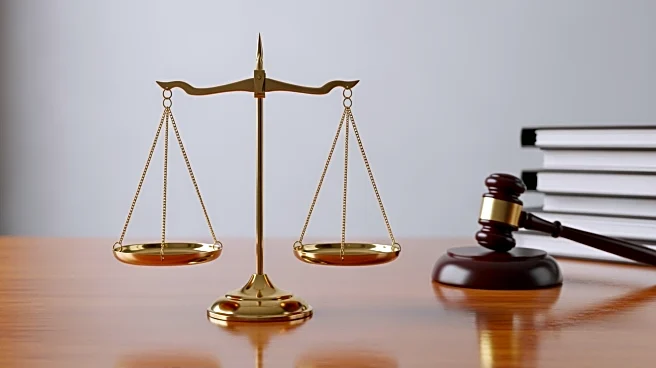What's Happening?
The U.S. Supreme Court is set to review President Trump's authority to impose tariffs under the International Emergency Economic Powers Act. This legal examination comes as the government seeks to defend
the President's actions, which have been a significant part of his trade policy. The tariffs, aimed at various international goods, have sparked considerable debate over their economic impact and legal justification. The case will explore the extent of presidential powers in economic matters, particularly in the context of international trade. The outcome could have significant implications for the administration's trade strategy and the broader U.S. economy.
Why It's Important?
The Supreme Court's decision on this matter could redefine the balance of power between the executive branch and Congress regarding trade policy. If the court upholds President Trump's use of the International Emergency Economic Powers Act, it could set a precedent for future administrations to unilaterally impose tariffs without congressional approval. This could lead to more aggressive trade policies and potential retaliatory measures from other countries, affecting global trade dynamics. On the other hand, a decision against the President could limit executive power, reinforcing the role of Congress in trade matters and potentially stabilizing international trade relations.
What's Next?
As the Supreme Court prepares to hear arguments, stakeholders from various sectors, including business leaders and trade experts, are closely monitoring the proceedings. A decision is expected to influence not only current trade policies but also future legislative actions regarding presidential powers in economic emergencies. The Federal Reserve's upcoming decisions on interest rates and economic policy may also be influenced by the court's ruling, as it could impact economic forecasts and corporate strategies.
Beyond the Headlines
The case highlights broader questions about the use of emergency powers in non-traditional contexts, such as economic policy. It raises ethical and legal considerations about the scope of executive authority and the potential for overreach. The decision could also influence public perception of the administration's trade policies and their impact on domestic industries and consumers.











